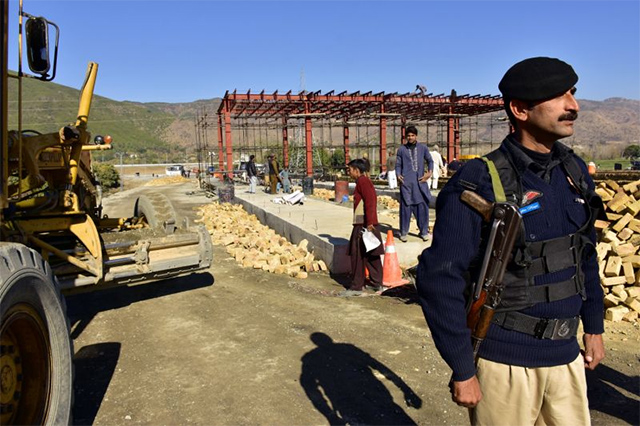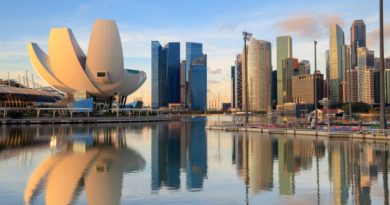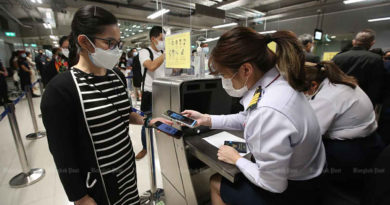ASIA-BEIJING: BUSINESS – China’s modern Silk Road hits political and financial hurdles
Beijing – China’s plan for a modern Silk Road of railways, ports and other facilities linking Asia with Europe hit a $14-billion pothole in Pakistan.
Pakistan’s relations with Beijing are so close that officials call China their “Iron Brother.” Despite that, plans for the Diamer-Bhasha Dam were thrown into turmoil in November when the chairman of Pakistan’s water authority said Beijing wanted an ownership stake in the hydropower project. He rejected that as against Pakistani interests.
China issued a denial but the official withdrew the dam from among dozens of projects being jointly developed by the two countries.
From Pakistan to Tanzania to Hungary, projects under President Xi Jinping’s signature “Belt and Road Initiative” are being canceled, renegotiated or delayed due to disputes about costs or complaints host countries get too little out of projects built by Chinese companies and financed by loans from Beijing that must be repaid.
In some areas, Beijing is suffering a political backlash due to fears of domination by Asia’s biggest economy.
“Pakistan is one of the countries that is in China’s hip pocket, and for Pakistan to stand up and say, `I’m not going to do this with you,’ shows it’s not as `win-win’ as China says it is,” said Robert Koepp, an analyst in Hong Kong for the Economist Corporate Network, a research firm.
“Belt and Road,” announced by Xi in 2013, is a loosely defined umbrella for Chinese-built or -financed projects across 65 countries from the South Pacific through Asia to Africa and Europe. They range from oil drilling in Siberia to construction of ports in Southeast Asia, railways in Eastern Europe and power plants in the Middle East.
Other governments welcomed the initiative in a region the Asian Development Bank says needs more than $26 trillion of infrastructure investment by 2030 to keep economies growing. Nations including Japan have given or lent billions of dollars for development, but China’s venture is bigger and the only source of money for many projects.
Governments from Washington to Moscow to New Delhi are uneasy Beijing is trying to use its “Belt and Road” to develop a China-centered political structure that will erode their influence.
China’s significance to Pakistan as a source of financing increased following US President Donald Trump’s Jan. 5 decision to suspend security assistance to Islamabad in a dispute over whether it was doing enough to stop Afghan militants.
“Belt and Road” is a business venture, not aid. A Cabinet official, Ou Xiaoli, told The Associated Press in April that lending will be on commercial terms. Beijing wants to attract non-Chinese investors, though that has happened with only a handful of projects, he said.
Among projects that have been derailed or disrupted:
- Authorities in Nepal canceled plans in November for Chinese companies to build a $2.5-billion dam after they concluded contracts for the Budhi Gandaki Hydro Electric Project violated rules requiring multiple bidders.
- The European Union is looking into whether Hungary violated the trade bloc’s rules by awarding contracts to Chinese builders of a high-speed railway to neighboring Serbia without competing bids.
- In Myanmar, plans for a Chinese oil company to build a $3-billion refinery were canceled in November due to financing difficulties, the newspaper Myanmar Times reported.
There is no official list of projects, but consulting firm BMI Research has compiled a database of $1.8 trillion of infrastructure investments announced across Asia, Africa and the Middle East that include Chinese money or other involvement.
Many are still in planning stages and some up to three decades in the future, according to Christian Zhang, a BMI analyst.
“It’s probably too early to say at this point how much of the overall initiative will actually be implemented,” said Zhang.
The US and Japanese governments express interest in building contracts or other potential “Belt and Road” opportunities for their companies. But they also are trying to develop alternative initiatives.
In November, the US government’s Overseas Private Investment Corp. signed an agreement with Japanese partners to offer “infrastructure investment alternatives in the Indo-Pacific region,” according to a White House statement.
Tags: CHINA, China’s modern Silk Road hits political and financial hurdles, manila bulletin, railways, Silk Road
COURTESY:
The Philippine Daily Inquirer
Published By Joe McDonald, Munir Ahmed, and Sylivester Domasa
(Associated Press)
.
NOTE : All photographs, news, editorials, opinions, information, data, others have been taken from the Internet ..aseanews.net | [email protected] |
For comments, Email to :
JARED PITT | [email protected] | Contributor









